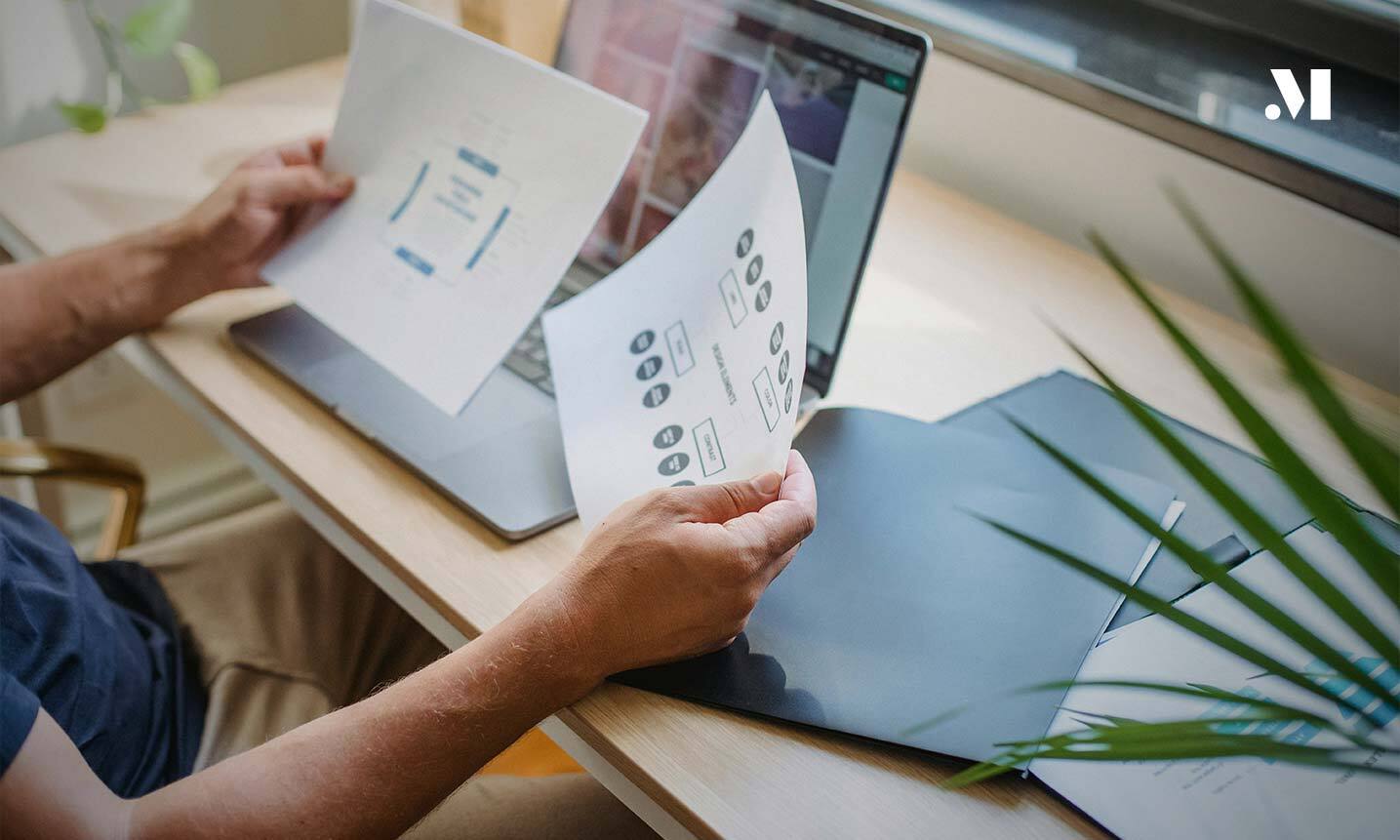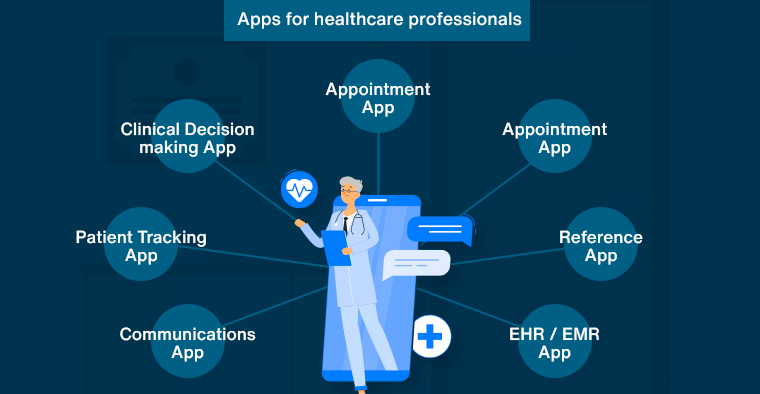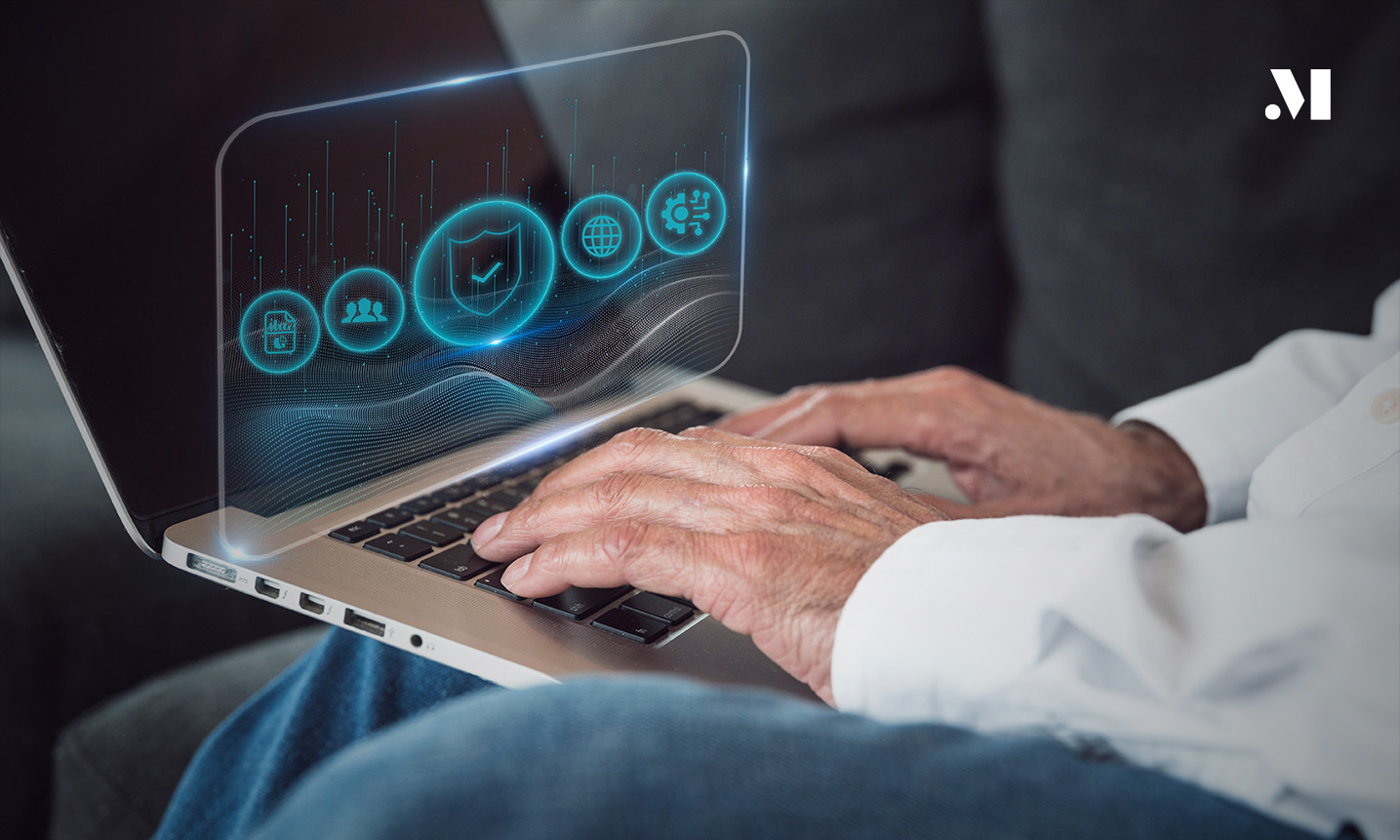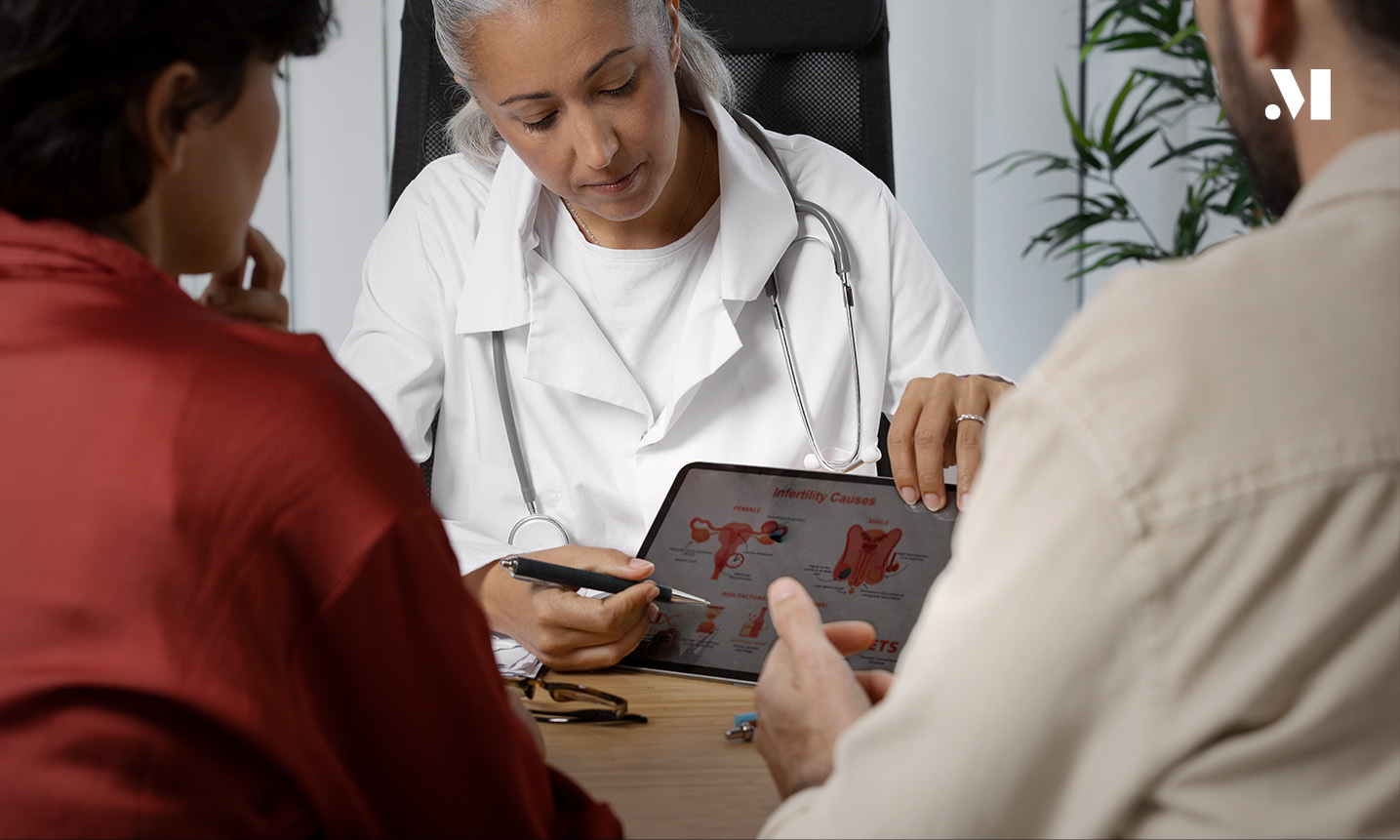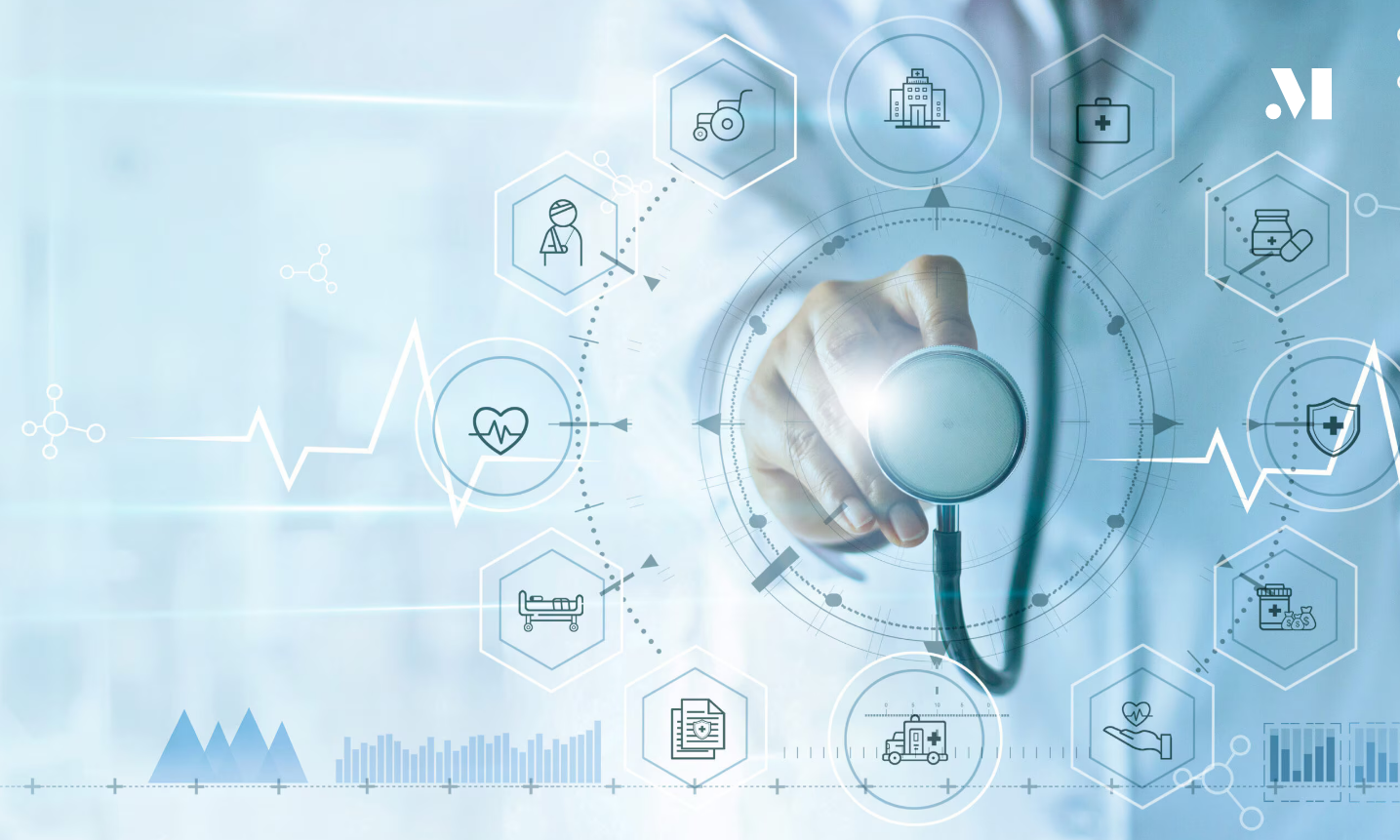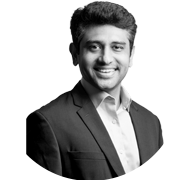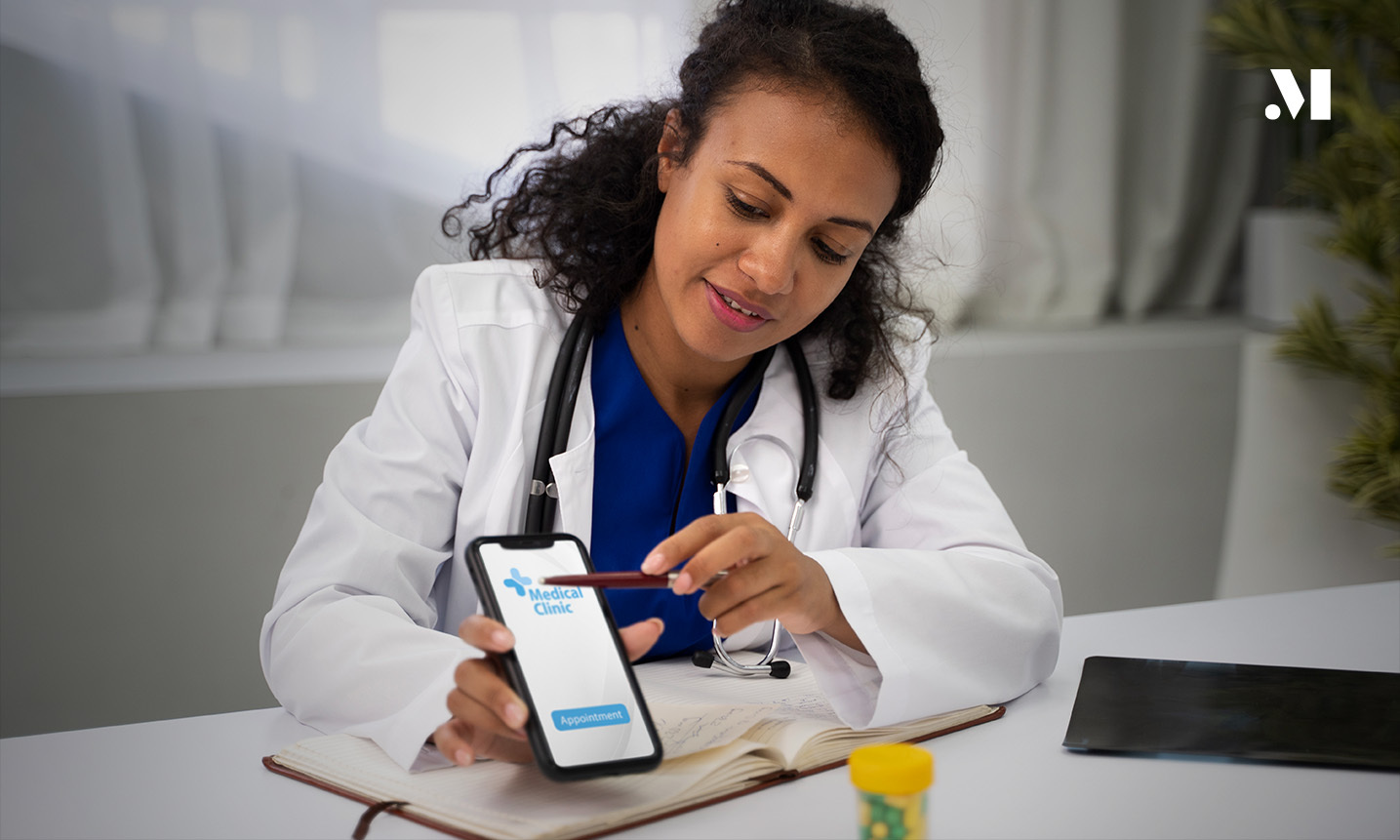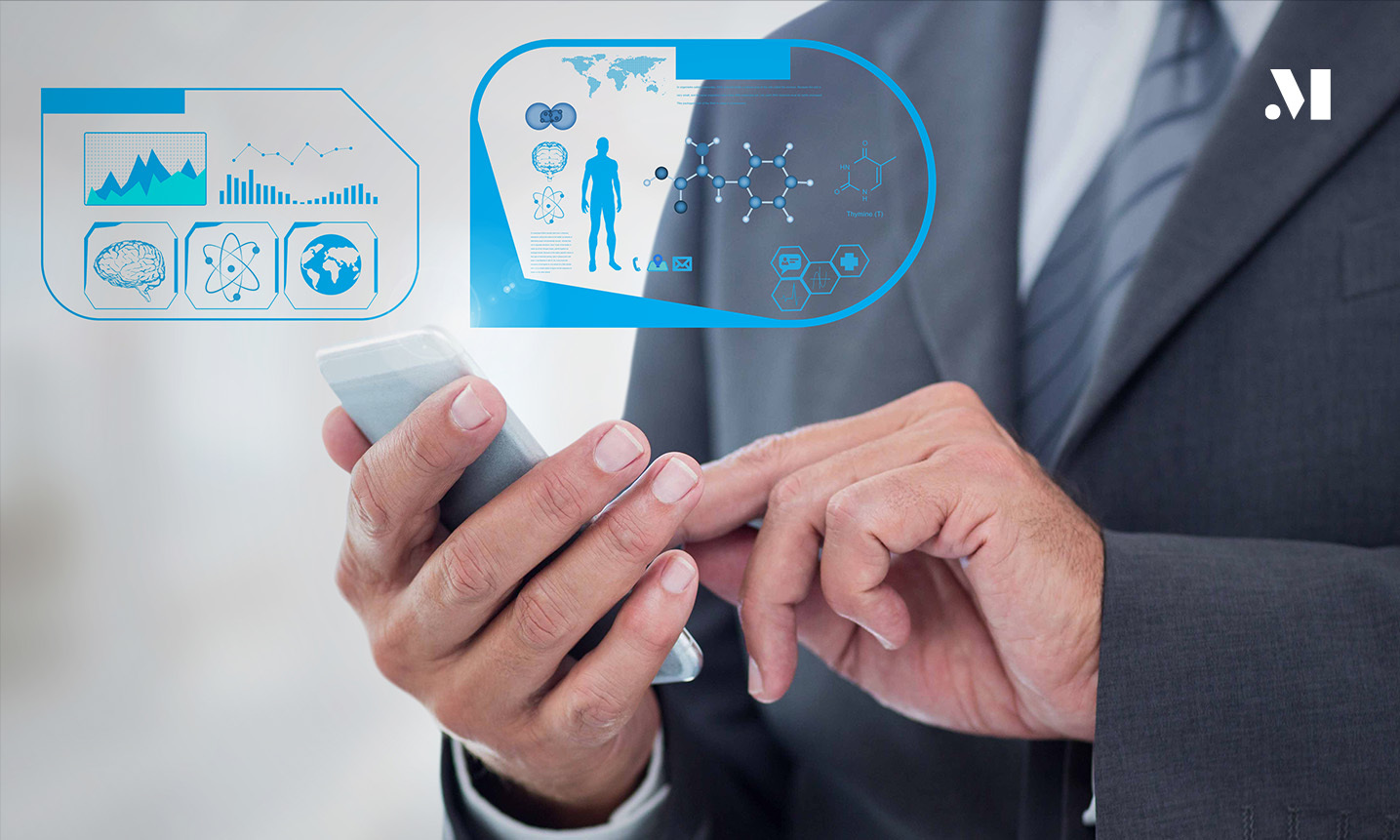Imagine a typical doctor's appointment.
You walk in and describe your problem. But before coming to a diagnosis, the doctor wants to know if you’ve been ill in the past. Cue: a drawn-out, chaotic process of sifting through a stack of past files looking for a single report. And what if they ask you a few more questions about your medical history? Doctors often need to help patients with hazy recall, which requires more time and effort.
Unsurprisingly, medical professionals have welcomed technology to help them with patient interactions, medical record keeping and even diagnosis - albeit cautiously. Healthcare apps are no longer seen as nice-to-have extras but rather as critical resources for meeting the challenges of existing healthcare systems.
40% of healthcare professionals have reported using mobile apps for health record maintenance, and 70% reported the use of mobile apps for clinical decision-making. Additionally, 20% said they would use apps to monitor their patients’ health.
Now, while technology provides a feasible solution, the digital tools we hand over to doctors must address their challenges and elevate the quality of care. What features are truly vital to them? What would make their work not only efficient but also more effective? What's on their app wishlist?
The right app can do wonders for a provider’s routine and care delivery by optimizing the flow of tasks and boosting overall efficiency. It doesn't just save time but can also lighten the load on resources and cut operational costs.
So, if you're wondering what's on a doctor's wishlist for the perfect app, here are the features they would be looking for.
1. Secure Messaging
A healthcare app differs from traditional messenger apps.
- Through end-to-end encryption protocols, these apps ensure that only the sender and intended recipient can decipher messages.
- While keeping medical records for reference is important, healthcare apps often set automatic deletion or archiving rules for messages. This ensures that sensitive patient data is not stored indefinitely and can be safely purged.
- Different user roles, such as doctors, nurses, and patients, have varying access levels to messages and patient records through role-based access control (RBAC).
- Audit trails record all messaging-related activities to track unusual behavior.
2. EHR Integration
Consider a patient with diabetes who relies on an app to track blood sugar levels, medications, and dietary habits. However, the app cannot synchronize with the clinic's EHR system. As a result, during a routine clinic visit, the clinician cannot access the patient's long-term glucose trends and medication history. Healthcare apps that integrate with EHR systems are highly preferred. A good healthcare app would quickly provide patient records to professionals, allowing real-time updates and improving clinical workflows.
3. Appointment Management
A doctor appointment app development company can create apps that allow healthcare providers to optimize their schedules, allocate time for breaks, and ensure a seamless patient experience throughout the appointment lifecycle.
Administrative processes can be streamlined by getting real-time updates on the provider’s availability, enabling effective waitlist management.
If the app integrates with EHR systems and has add-on telemedicine capabilities, it provides a well-rounded solution for providers.
4. Clinical Decision Support
Mobile apps provide evidence-based recommendations, drug information, and diagnostic support to help healthcare professionals make informed decisions quickly.
This on-the-go access to medical knowledge enhances clinical decision-making, reduces the risk of errors, and promotes patient safety.
Doctors commonly use Personal Digital Assistants (PDAs) for managing schedules and recording patient data. Still, they also serve as handy references for clinical information, drug calculations, and clinical decision support systems (CDSS). PDAs facilitate the transfer of CDSS from desktop PCs to clinical settings.
5. Prescription Management
Jokes about doctors and their horrible handwriting are legendary! Recently, there’s an easy solution to this age-old problem.
Efficient doctor app development can simplify the prescription processes to bring accuracy and enhance patient safety. A well-functioning app for doctors can electronically prescribe medications, minimizing errors associated with traditional paper prescriptions.
6. Telemedicine Capabilities
Telemedicine capabilities that allow for remote consultations and remote patient monitoring play a crucial role in doctor on-demand app development. These features improve the app's performance and help make it easier for doctors and patients to collaborate through real-time video consultations.
With remote vitals tracking and efficient real-time communication, 38% of patients avoided a trip to the emergency department using telemedicine.
Imaging technologies within healthcare apps involve much more than simple image viewing from the standpoint of a medical expert.
They capture images within the app, add important information or notes to those images, and work seamlessly with existing medical imaging systems or setups.
For instance, a radiologist can use these tools to record an MRI scan of a patient, highlight relevant sections with annotations, and then quickly send the resulting image to the patient's treating physician for a more thorough and collaborative diagnosis.
8. Task Management
Medicine is about the science of healing and the art of managing the process.
Task management features like to-do lists, reminders, and task assignments in custom healthcare app development contribute to organised workflows and improved productivity with effective time management.
9. Continuing Medical Education
Recent research underscores the importance of continuous learning for doctors. Well-designed applications help access educational resources, online courses, and certification tracking, massively contributing to the professional development of HCPs and better treatments for patients.
10. Data Security
As medical professionals are well aware, patient data is as sensitive and private as any other identity-related metric - from a regulatory and ethical point of view. When selecting healthcare applications, doctors prioritize robust security measures and encryption protocols to safeguard this sensitive information.
These apps contain encryption mechanisms that secure data both in transit and at rest, multi-factor authentication to enhance access controls, and audit trails to track interactions with patient records.
Appealing Features And Functionalities Of The Applications
In addition to the above essential features, healthcare app solutions designed for doctors have various functionalities that cater to their unique needs. Here's what you require in healthcare mobile app development that can serve multiple benefits.
- Creating the Login Page and User Profile: A seamless user experience begins with an intuitive login process and the ability to create personalized user profiles.
- Building Doctor Profile: Comprehensive doctor app development requires profiles that provide patients with essential information, building trust and rapport.
- Ratings, Reviews, and Images: Patient feedback, ratings, and images contribute to transparency and help patients make informed decisions.
- Geo-Location: Geo-location features in an app for doctors can assist patients in locating doctors' practices, improving accessibility.
- In-built Payment Options: Integrated payment options simplify billing and payment processes for services provided.
- Dealing with Emergency Cases: Special provisions for emergency cases ensure timely response and care delivery.
Conclusion
With each innovative feature and function, healthcare applications contribute to a more connected, efficient, and patient-centric ecosystem. These apps are more than just tools for doctors—they're game-changers! They help with diagnostic insights, efficient patient management, and improved communication. As the healthcare industry evolves, embracing the potential of these mobile apps becomes essential, not just for optimal patient care but to empower doctors and modernize medical practices.
At Montar Healthtech, we understand that every healthcare practice is unique. With a deep understanding of the complexities and nuances of the healthcare industry, Montar Healthtech leverages cutting-edge technology to create impactful solutions to deliver high-quality, efficient, and patient-centric care.
Key Takeaways
- Healthcare Applications are a testament to their transformative impact on medical practice.
- These apps are tailored to address healthcare professionals' unique challenges and demands.
- They offer various services such as secure messaging, telemedicine capabilities, online consultations, emergency clinician support, and more.
- Incorporating EHR integration, appointment management, and clinical decision support empowers doctors to provide efficient, evidence-based care.
- As technology continues to shape the healthcare landscape, integrating custom healthcare mobile app solutions is poised to redefine patient care and doctor-patient interactions.
Solutions
Resources





